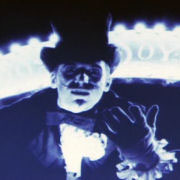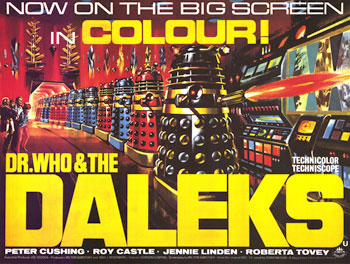Newspapers and the movies: The past
The other day I was asked by someone to give my 'manifesto' for how newspapers should be adapting to new media, which basically boiled down to "Stop doing stuff badly". The byword for coping badly with the new media era is the music industry. A lot of the time when people are discussing the economic impact that new media has had on the newspaper industry, the music industry is cited as the obvious parallel example of a medium disrupted by technology. However, I've begun to wonder if it isn't actually the movie industry that provides a better comparison. Both industries have gone through some very similar development phases, which I wanted to look at today.
The silent era and the print era
The growth of newspapers was itself a disruptive influence on society. News had previously been carried by word of mouth, town criers, Royal Proclamation, and the roughly printed broadsides that could take a couple of days to travel around the country. Local newspapers provided a model of news distribution that - mostly - survives to this day, and then improvements in printing techniques, transport and communication paved the way for national titles.
Indeed, one British national title still carries the name of one of the technologies that empowered the faster distribution of news - "The Telegraph". I can't imagine anyone launching a new national print title with the name "The Email" or "The Internet". [1]
The growth of cinema was also disruptive. The actual plot of the recent Torchwood episode "From out of the rain" may not have survived close scrutiny, but it did correctly identify cinema as a factor in nearly completely bringing to an end travelling shows. Instead of one set of performers appearing in a different location every night for one audience, cinema allowed one performance to be preserved and shown simultaneously and repeatedly to many audiences.

In the cinema world this meant putting power in the hands of distributors and studios, whilst creating the stars of the silent age. For newspapers, this meant star journalists and columnists, backed by the fortunes of the families that owned and ran the presses.
The arrival of 'the talkies'
Massive change came to the movie industry with the invention of the talking picture. In a phrase that seems prescient of many an old newshound decrying the rise of the Internet, film mogul Irving Thalberg said of the change:
" Novelty is always welcome but talking pictures are just a fad. "
Overnight, silent stars without good acting voices were on the scrap-heap, and an entire art form was made instantly 'old-fashioned'.
Newspapers equally faced a new spoken word challenge, in the shape of radio. Here newspapers used their natural advantages. Not only did they have more space to reflect and analyse events, but in the early years of BBC Radio the news was bound by charter to be impartial, and there was no on air competition. That meant that newspapers could distinguish themselves by standing for something, against the bland tide of reporting from the BBC. [2]
The rise of television
The rise of television news in the 1950s and 1960s was another threat to newspapers. It has been writing down some ideas about Adrian Monck's "Can you trust the media?" book launch that crystalised this comparison for me. His thesis is that it was being faced with television news that caused newspapers to reach for pollsters to 'prove' that the printed word was more trusted than the on-screen word. This was a move to try and retain advertising dollars.
Personality would ultimately win out in that argument, though. BBC Television News bulletins launched without the newsreader even being on screen, lest they distract from the news. Gradually television presenters took on the 'news giving' authority that newspapers had once monopolised. Mind you, heaven knows how a 1950s television news audience would have coped with 'the Emily Maitlis leg scandal'.
Tabloid papers particularly responded to television by making the provision of television listings, and the discussion, review and coverage of television programmes a core part of their editorial offering.
The movie industry also faced an uphill battle against television. How could you persuade people to part with their hard-earned cash at the cinema, when for the price of a television (and accompanying licence in the UK) they had round-the-year entertainment in their own front rooms.
The movie response was to go bigger and bolder and play to their strengths. The 1960s Dalek movies boasted that you could see the Daleks 'in colour', which you couldn't do yet on the small screen.

Studios also experimented with 3D movie formats and pushing the boundaries of subject matter and taste beyond that which could comfortably be broadcast under the tighter regulation of the airwaves.
Next...
The next couple of decades of development in television didn't have a huge effect on newspapers or the movies - nobody, for example, ever complained that Ceefax detracted from paper sales or movie audiences. However, new media did provide a brand new challenge to both industries - one that they have reacted to in different ways. Tomorrow, I'll be examining that.
[1] Although "The Network" quite appeals to me as a working title if anyone ever were foolish brave enough to launch a new national print newspaper in the UK ;-) [Return to article]
[2] Not always quite so bland if the presenter had enjoyed a tot of rum or two before the broadcast, of course. [Return to article]